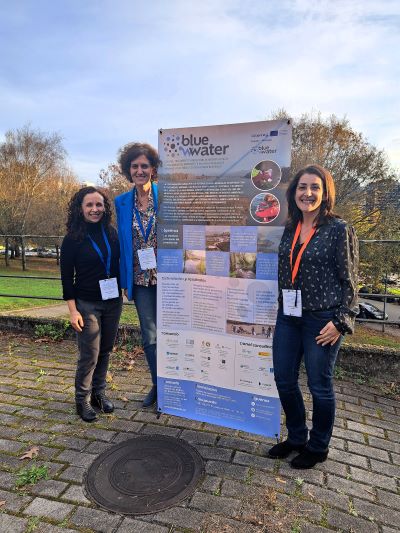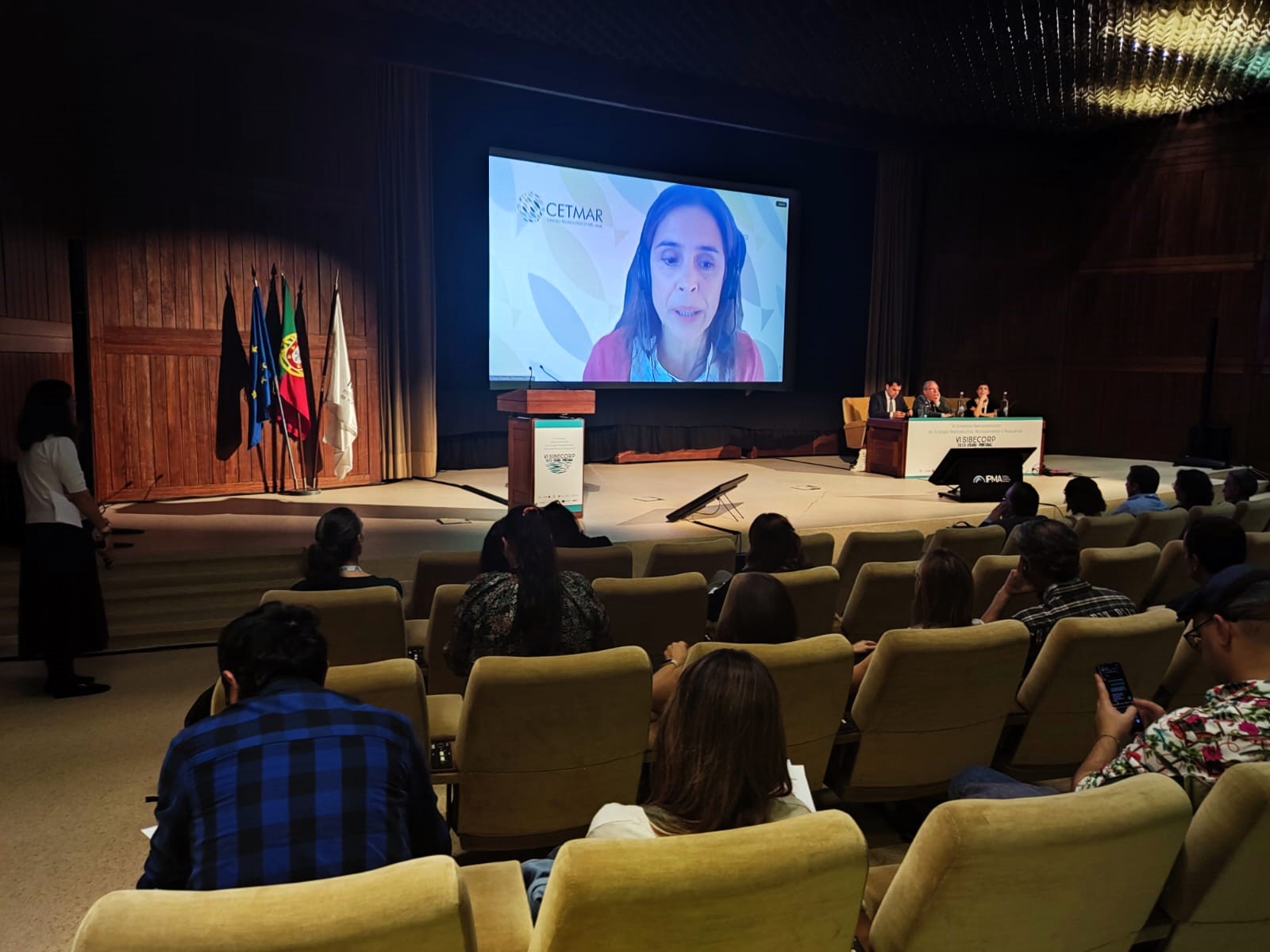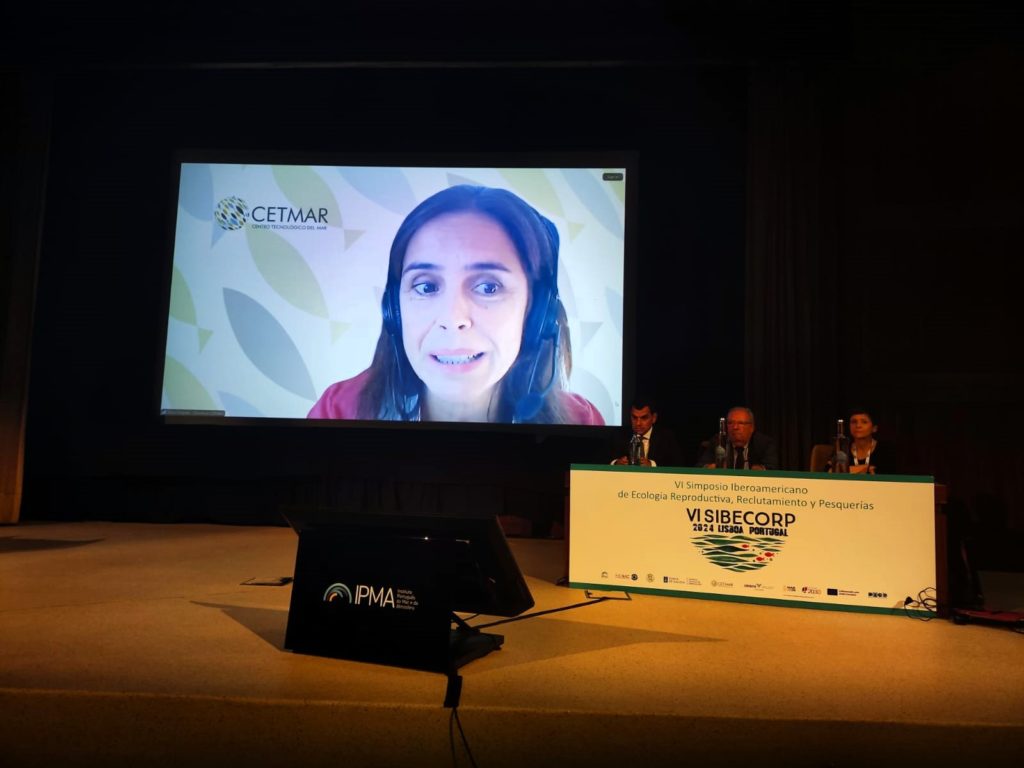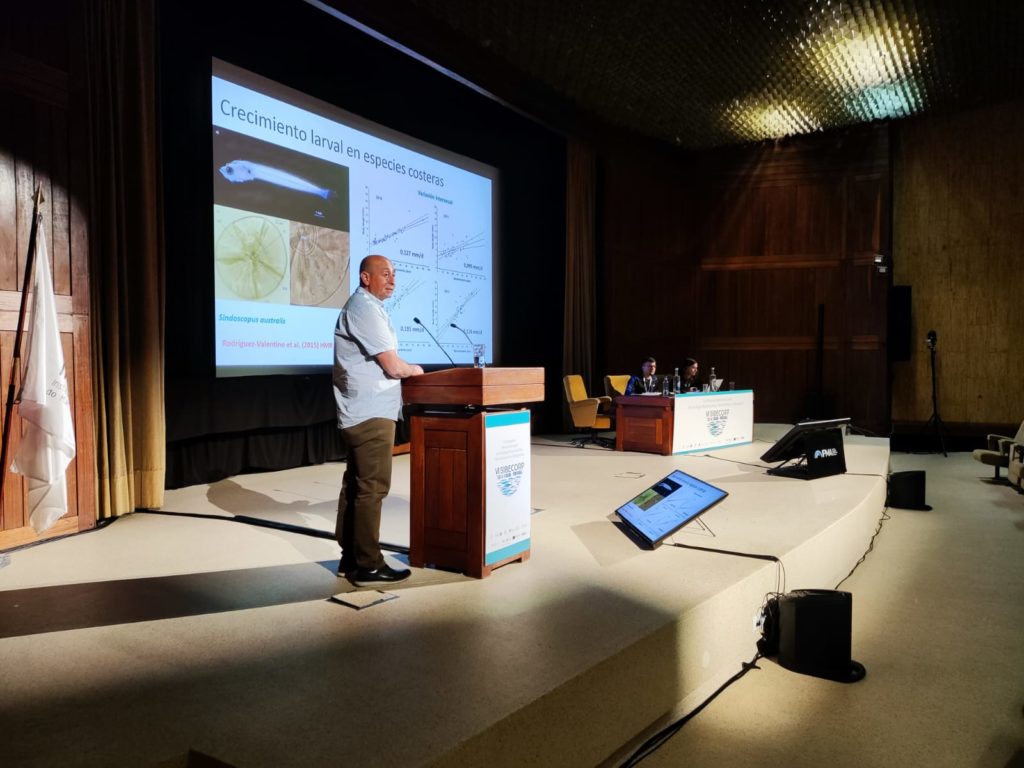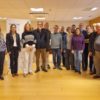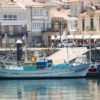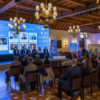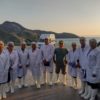
The BlueWWater partnership advances in the development of new methods to treat and reduce microplastics and emerging pollutants in the coastal environment between Galicia and Portugal
The European project BlueWWater, coordinated by the Technology Centre of the Sea- CETMAR, is making progress in the objective of controlling and reducing the presence of microplastics and emerging pollutants in both urban wastewater and the coastal environment between Galicia and northern Portugal.
The institutions working on this initiative, co-financed by the European Union through the INTERREG VI-A Spain-Portugal Cooperation Programme (POCTEP) 2021-2027, met on Thursday 7th November at the Aquatic Environment Research Institute for Global Health (iARCUS) of the University of Santiago de Compostela (USC) for the third coordination project meeting, reporting on the progress of the project.
During the meeting, organized by the Chromatography and Chemometrics Research Group (ChromChem) of the USC, the partners reviewed the advances in the development and optimization of methods for the evaluation of pollutants and microplastics, almost finished. It will allow automated and standardized analysis in surface water (river and coastal) and wastewater samples. Twelve external laboratories will participate in the validation of this new analytical method, to be carried out through an interlaboratory comparison (ILCs).
In addition to this activity, led by the USC with the participation of the Technology Institute for the Control of the Marine Environment (INTECMAR), Water and Energy from Porto (E.M.) and IEO-CSIC, the BlueWWater consortium analyzed the planning and coordination of the first sampling campaign of river and coastal waters and Wastewater Treatment Plants (WWTP), to be carried out this month in Galicia and in northern Portugal. The samplings were planned in line with the guidelines of the recently approved Urban Waste Water Treatment Directive.
Meanwhile, the efficiency of various pilot treatments for the removal of pollutants is being assessed. Also, the study of the potential reuse of treated water for use in agriculture is planned together with another study on environmental risk based on ecotoxicological tests, while work is being developed in models to evaluate the dispersion of pollutants in the aquatic environment.
All these activities, coordinated by the Faculty of Sciences of the University of Porto (FCUP), include the participation of Water and Energy from Porto, E.M. (AEdP), the Faculty of Engineering of the University of Porto (FEUP), IEO-CSIC, the Interdisciplinary Centre for Marine and Environmental Research (CIIMAR) and the Water Technology Centre (CETAQUA).
Regarding the environmental education and awareness-raising activities planned in BlueWWater there was, among other activities, the production of an educational video ‘O ciclo de vida do plástico’ (The life cycle of plastic), the clean-up campaigns in the Limia and Miño rivers and the placement of an eco-barrier in Ribeiro de S. Gonçalo (Miño river). Some of these activities were part of the INTERREG Cooperation Day on 21st September.
NOR-WATER Network
CETMAR is leading efforts to boost and consolidate the NOR-WATER network, born in a previous project with the aim of setting a forum for multidisciplinary public-private collaboration in the field of Contaminants of Emerging Concern (CECs).
Efforts are now focused on the development of a catalogue of skills and technological offer; a website is being designed to include this catalogue, as well as an interactive skills map and a database with information about CECs projects and resources.
Further to the project coordination meeting, the BlueWWater partners attended on Friday morning to the workshop ‘Present and future of the contamination of the aquatic environment by emerging pollutants and microplastics’, which took place in the auditorium of the iARCUS of the USC, with the participation of entities from the scientific and technological field.
This workshop was organized by the USC ChromChem Group and iARCUS in the BlueWWater project and in collaboration with the NePMTune project (Protecting the circular water economy from the threat of persistent, mobile and toxic chemicals), funded by the National Research Agency and the European Union through the NextGeneration/PRTR funds.
The aim of the workshop was to analyze methods and technologies to determine, treat and remove pollutants, as well as the challenges of the recent approval of the new Urban Waste Water Treatment Directive.
Speakers discussed the challenges of the Directive regarding the monitoring of pollutants and the ecotoxicological studies and environmental impact analyses in the aquatic environment. Studies on the reuse of treated water for crop irrigation were presented, and there were debate on solutions for the elimination of micropollutants with quaternary treatments in WWTPs that allow progress towards energy neutrality.
About the BlueWWater consortium
Together with CETMAR, coordinating BlueWWater, the consortium includes INTECMAR, the University of Santiago de Compostela, CETAQUA Galicia and IEO-CSIC. The Portuguese partners include the Faculties of Engineering and Science of the University of Porto, CIIMAR, Water and Energy from Porto E.M, Aquamuseu from Vilanova de Cerveira and Environmental Interpretation Centre from Viana do Castelo.
The partnership is also supported by an advisory panel made up of Waters from Galicia, the Miño-Sil Hydrographic Confederation, the Portuguese Environment Agency, Aguas del Norte S.A., Labaqua, S.A. and Viaqua Water Integral Management from Galicia.
This action is co-financed by the European Union through the INTERREG VI-A Spain – Portugal Cooperation Programme (POCTEP) 2021-2027.

